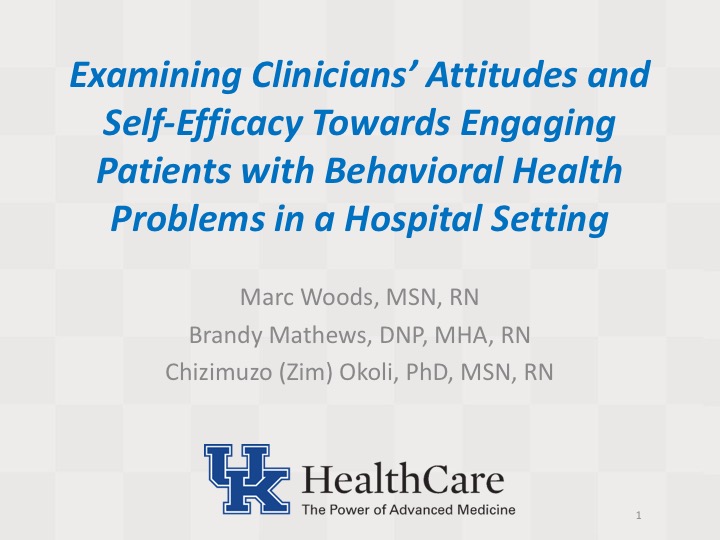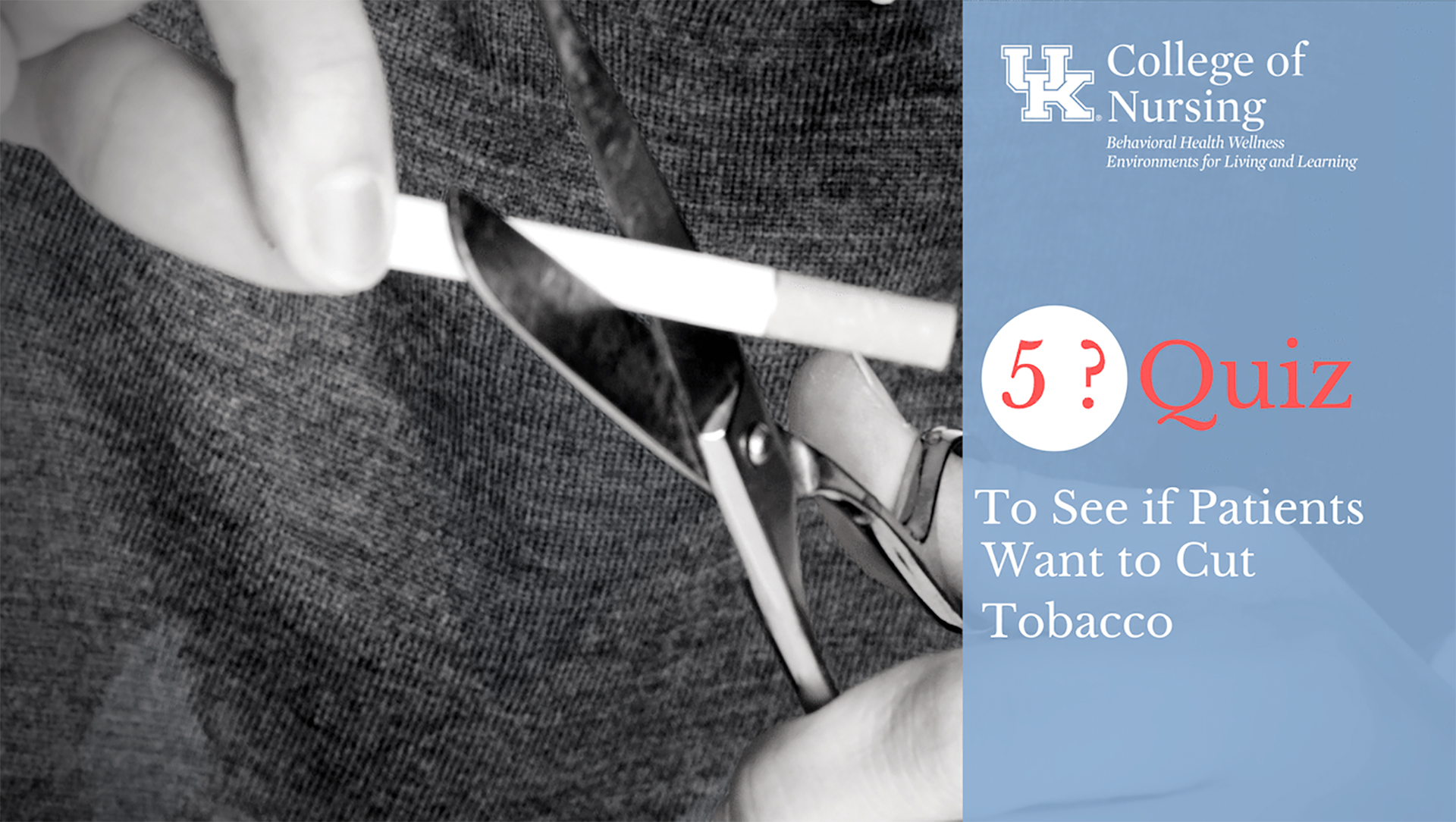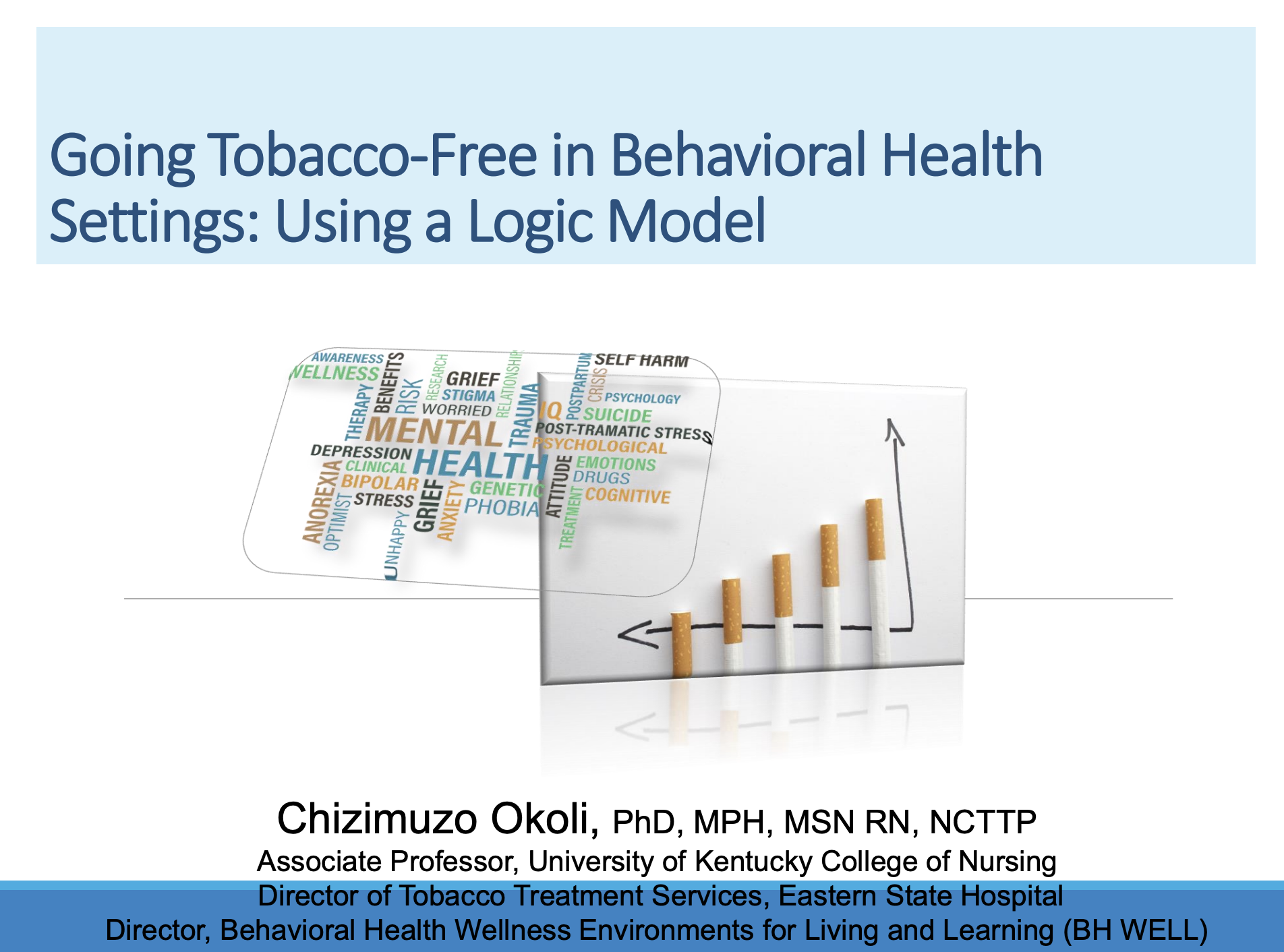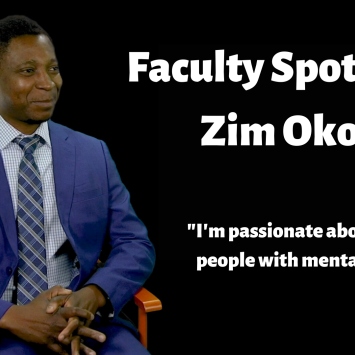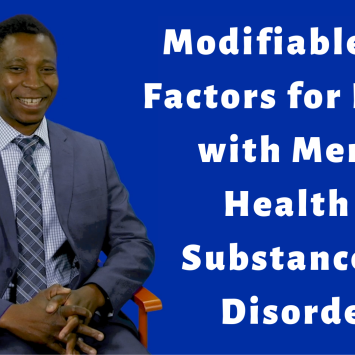Welcome to the BH WELL video blog. I’m Chloe Robertson, your host. BH WELL stands for Behavioral Health Wellness Environments for Living and Learning. Today on the vlog we have with us Dr. Okoli to talk about the 6 modifiable risk factors for people with mental health and substance use disorders as identified by the Substance Abuse and Mental Health Services Administration also known as SAMHSA.
Poverty, Social Isolation, and Trauma
Can you first tell us why poverty, social isolation, and trauma is considered a modifiable risk factor?
Some people might consider poverty a situation you are born into or social isolation is linked to location. So I don't think anybody is born poor. I think we are born into situations, governments, policy, or societies where there might be inequitable distribution of wealth. So if we call that poverty, then you could call that poverty. But I think a lot of issues related to poverty, social isolation, trauma, things like that are modifiable because they are things that can be changed if we put in good policy's understanding peoples specific situations, tailoring policy so that we can take away things that may cause unintended consequences, I think we can eliminate a lot of these issues.
Obesity
Why is obesity of particular concern for individuals living with mental health issues?
Obesity is a multifaceted problem which means there are several things that can cause obesity. One aspect of obesity is some of the medications that individuals take when they have mental illnesses which can cause weight gain it can cause certain things that can eventually lead to obesity. Another aspect is certain people living with mental illnesses don't have resources or the ability to exercise regularly. Their nutrition may not be as adequate as it could be, so these factors can also lead to obesity. So when we're treating people with mental illnesses part of our plan is to make sure that they have a lot of aspects beyond medications that can really help them to live a balanced, a well life, which could include things like good nutrition, education, adequate exercise, and making sure they get enough sleep.
Medication Side Effects
Medication side effects are of particular concern for this population, especially cardiovascular disease, please share a bit about why this is true.
So people with mental illnesses may take medications for their mental illness that have side effects that can cause heart problems. Sometimes they have to take other medications to combat those side effects or we have to be careful to make sure that they don't have a history of heart problems in order to prescribe the right medications to them. So it is a complex issue but I think one way that we address it is to make sure that we advise our patients in eating heart healthy foods; You know, things with low cholesterol, low sugars, and just having adequate proper nutrition, eating the vegetables that are really good for the heart and things like that. So on the one hand medications can cause some of the heart side effects but if we can balance it with proper nutrition proper exercise we can combat some of these side effects.
Substance Use
How does other substance use, alcohol, and drugs increase risk?
So other substance use, alcohol, and drugs can affect individuals with mental illnesses in two ways, I would say. The first way is they may mimic symptoms of the mental illness which makes diagnosing them complicated. For example, if somebody is using some hallucinogenic drug, it may come out that they may have psychosis, but actually it's more of the drug induced psychosis. So we need to be able to help individuals stop the use of these drugs in order to enhance their mental health treatment. On the flip side a lot of people begin to use drugs who have mental illnesses because they're sort of self-medicating their problem. They know that they're uncomfortable emotionally and before they receive a diagnosis they may try several substances in order to see if they can manage the symptoms they are expressing. The good news is that we now have a lot of medication options that we know can help manage those symptoms. Part of the treatment plan when we we're working with individuals living with mental illnesses who have a substance use problem, we really help them to stop using the substances so that it can improve our ability to make a proper plan that can help them in their recovery and to stay well.
Poor Access to Help
How does lack of access to quality healthcare affect individuals living with mental health and substance use disorders?
Recently, I've been traveling through Kentucky. And you know Kentucky has a largely rural population. One of the challenges we've heard over and over is access to medical and mental health care access in terms of even having transportation or access in terms of having health care providers available. So access is a huge issue in terms of getting people the necessary treatments that we know work. And on the other hand, it's not just getting the treatments to the people, but also helping the people get to the treatments. So some modalities that are new and kind of innovative are using things like Telehealth, Telemedicine, and sometimes we can even mail medications to patients. So there are new opportunities in order to combat the issues surrounding access to health.
SAMHSA
Do you have any final comments concerning SAMSHA?
I think SAMHSA has done a really good job in promoting the need for taking care of substance use and mental health issues. They have a lot of evidence-based resources that help us in our practice and can guide our research. I'm glad to recommend anybody to go to SAMHSA to have a lot of the resources we need when taking care of people with mental illnesses, understanding mental illness and substance use disorders, and helping people live a life that enhances their recovery.
Thank you Dr. Okoli for that thought-provoking insight. Interested in learning more? Check out our website at https://www.uky.edu/bhwell/. Thanks for tuning into the BH WELL vlog where behavioral health is our priority. See you next time.
